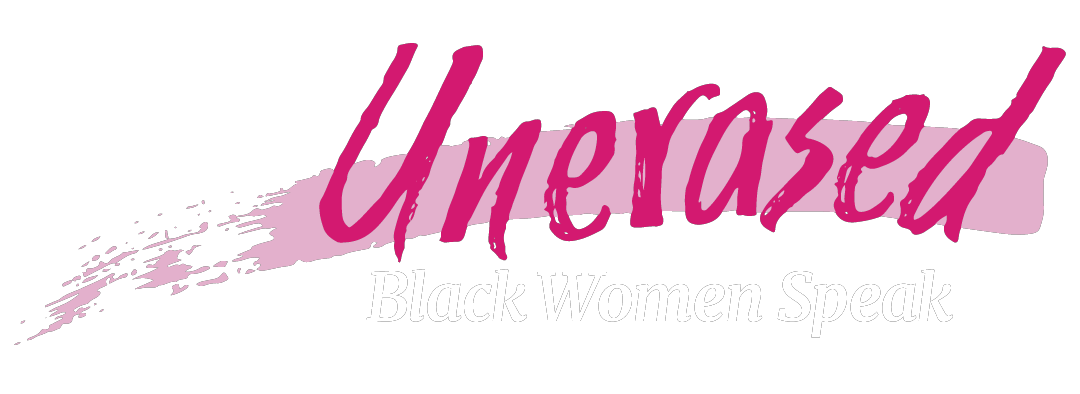
Tracy Jan
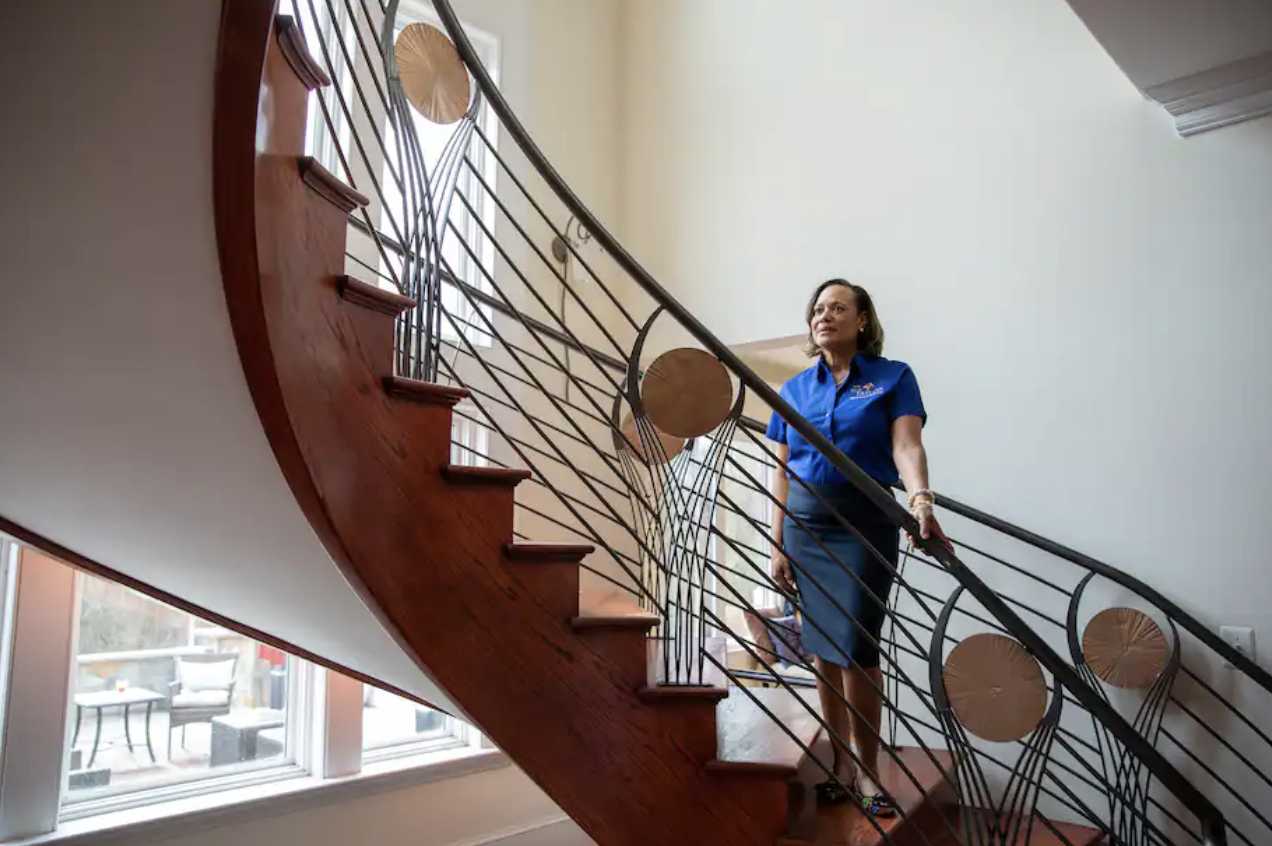
Kym Taylor’s Bowie, Md., home was appraised last year at $300,000 less than what she and her husband had paid in 2015. (Amanda Andrade-Rhoades for The Washington Post)
So the couple were shocked when their home appraised for $1.15 million in 2021 at the height of the real estate market — half a million less than what they were expecting and $300,000 less than what they had paid six years earlier.
The Taylors, owners of a home health-care agency, had been counting on using the equity in their home as collateral to buy another company. But the lower appraisal meant they had to tap into aseparateline of credit to complete the deal, erodingemergency funds set aside to expand their business.
Their experience is common. Homes in Black neighborhoods are valued at 23 percent less, on average, than those in comparable White neighborhoods — despite having similar neighborhood and property characteristics and amenities, according to a Brookings Institution report.
The devaluation of Black communities adds up to about $156 billion in lost equity — money that could have been invested in education and entrepreneurship, said Andre Perry, a senior fellow at Brookings and author of “Know Your Price: Valuing Black Lives and Property in America’s Black Cities.”
“This is the money that can be used to lift yourself up that proverbial economic ladder,” said Perry, who also lives in Prince George’s County. “That is what’s being extracted from our communities.”
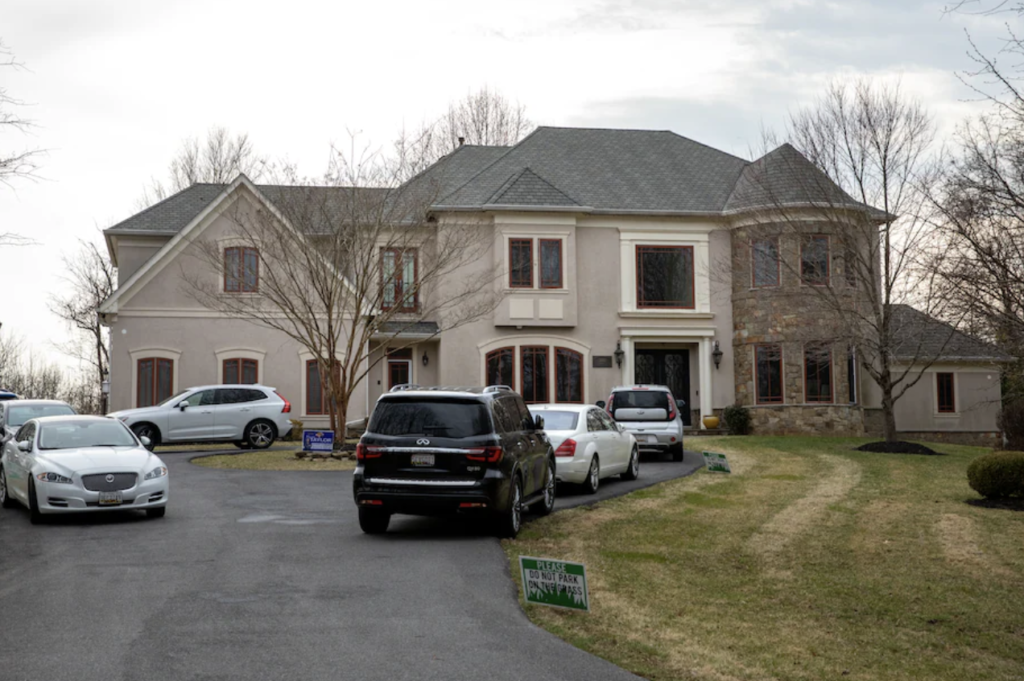
The Taylors paid $1.45 million for their home in Bowie, Md., in 2015. It was appraised last year for $1.15 million. (Amanda Andrade-Rhoades for The Washington Post)
“We are a predominantly African American county, so in some people’s minds, there’s no way there is an affluence here that will either last or is seen as important at all,” said Kym Taylor, 58. “I could build the same house in Bethesda, and it’s going to appreciate. I know I’m going to have some equity that I could use for my business or my kids’ college. But making the same investment in Prince George’s? It’s negligible appreciation, and in some cases, even a depreciation.”
And yet, many Black families choose Prince George’s so their children grow up surrounded by other Black role models and relatively sheltered from discrimination.
“It matters that my Black boys in their hoodies and nice athletic shoes aren’t going to be looked at as hoodlums. They’re going to look like my neighbors’ sons. They are going to get the benefit of the doubt,” Taylor said.
“They will also feel more comfortable aspiring because they can see where it’s a possibility,” she said. “If they don’t see themselves in the nice home down the street, then they don’t know that is attainable for them.”
Just one lower appraisal could affect the cumulative wealth of an entire community, according to a new Biden administration report on the causes, extent and consequences of property misvaluation. Ultimately, undervaluation of Black communities could reduce property tax revenue to fund maintenance and improvement of local schools and amenities.
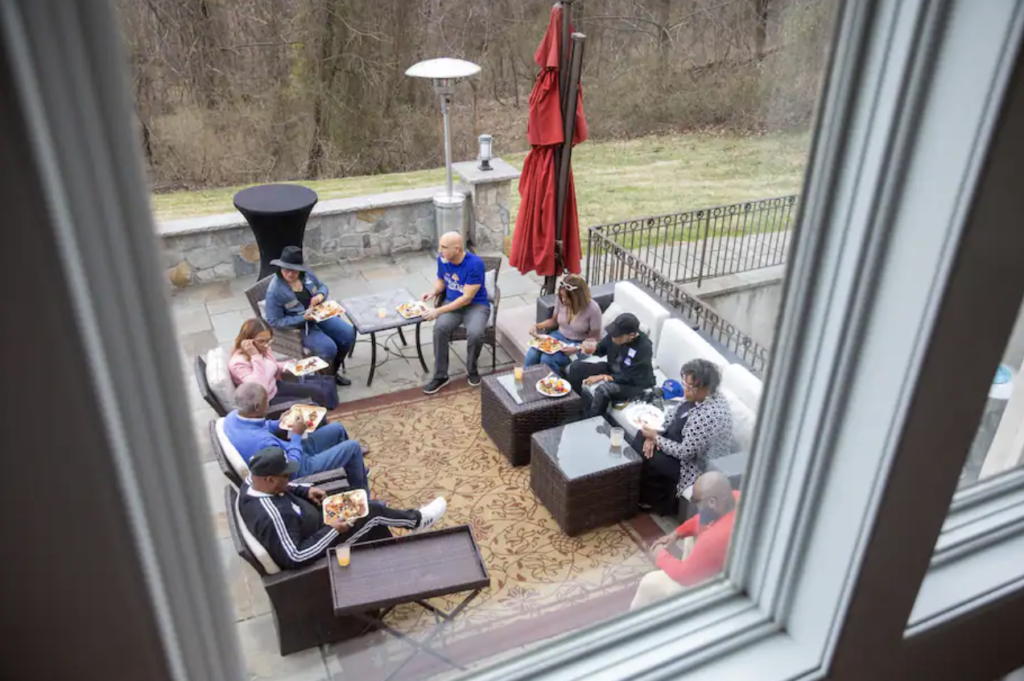
Guests enjoy the outdoor space of the Taylor home during Kym Taylor’s 58th birthday party, which doubled as a fundraiser for her campaign for state delegate. (Amanda Andrade-Rhoades for The Washington Post)
Appraisal bias can hurt a family’s ability to leverage home equity to pay for college, expand a business, pay for repairs or use as a buffer during financial hardship.
For home purchases, an appraisal that comes in lower than the contracted price could result in a higher down payment, cause a sale to fall through or force adownward price negotiation, reducing the seller’s profits.
A 2021 study from Freddie Mac found that 12.5 percent of appraisals for home purchases in Black neighborhoods and 15.4 percent in Latino neighborhoods came in below the contract price, compared with 7.4 percent of appraisals in White neighborhoods.
When refinancing, undervaluation could reduce the cash-out available and result in higher interest rates and mortgage insurance premiums.
While home appraisals are supposed to be independent, fair and objective estimates of market value so lenders can accurately evaluate risk, the results depend upon the appraiser’s expertise and familiarity with the neighborhood, the Biden administration report found. Much rests on the appraiser’s selection of comparable properties and how they weigh those selections.
The appraisal industry remains one of the country’s least diverse professions; 98 percent of appraisers are White, according to the U.S. Bureau of Labor Statistics. Research has shown that appraisers choose comps in a narrower geographic range for properties in Black and Latino neighborhoods than in White neighborhoods, the report said.
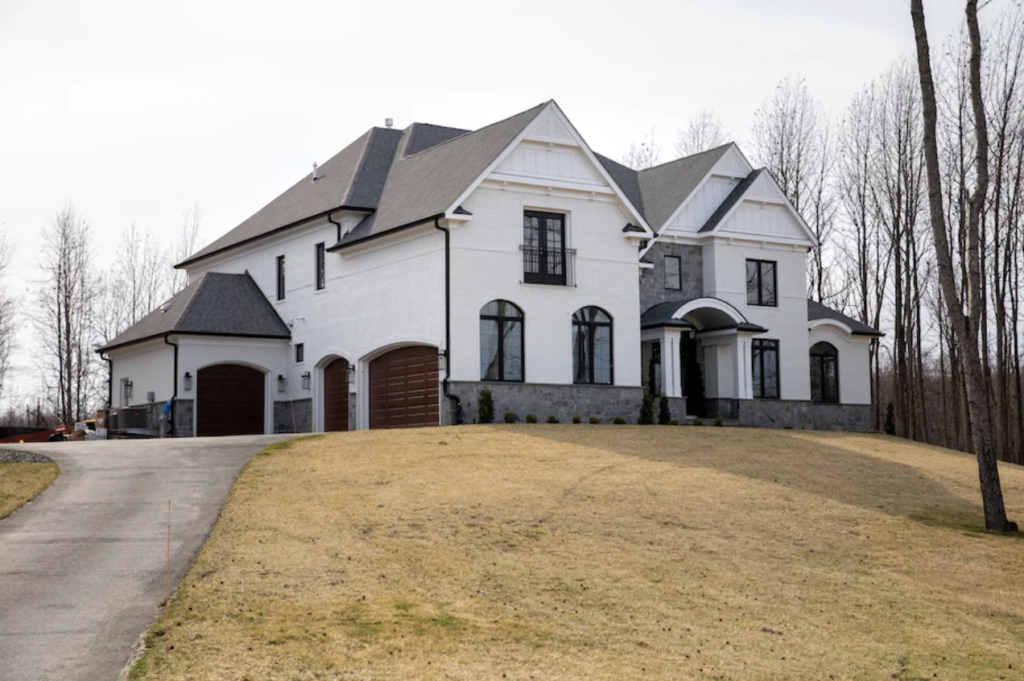
The Priestly home in Bowie, Md., which cost $1.68 million to build, was appraised at $1.3 million in 2021. (Amanda Andrade-Rhoades for The Washington Post)
“You’ve been told these houses can’t get this expensive. It’s Prince George’s County. It’s an all-Black neighborhood. It’s a stigma,” said Jack Sonceau, an appraiser in the region since 2005, who is Black. “Until we get a diverse workforce, this is going to continue to happen.”
The federal report, to be released Wednesday, was the product of an initiative on property appraisal and valuation equity that President Biden announced in June as part of his focus on addressing systemic racism and closing the racial wealth gap.
Led by Housing and Urban Development Secretary Marcia L. Fudge and Domestic Policy Council Director Susan Rice, the task force recommended that the appraisal industry diversify to more accurately reflect American communities and require anti-bias, fair housing training for those who conduct appraisals for federal programs.
Fudge, too, has said she is affected by appraisal bias in her neighborhood outside Cleveland.
“The appraisal process is so unfair,” Fudge said during a recent interview on “The Breakfast Club.” “I live two doors from an all-White community. I live in an all-Black community. My lot is bigger. My house is bigger. My house is valued at $25,000 less than the house two doors from me. We have lost billions as a people solely through the appraisal process.”
In the San Francisco Bay area, a Black couple has sued their appraiser, alleging bias after their home was valued at nearly $500,000 more once a White friend posed as the homeowner. The Justice Department weighed in on the case, filing a statement of interest in February asserting that the Fair Housing Act prohibits discrimination in home appraisals and that combating housing discrimination is a high priority across the federal government.
Rep. Maxine Waters (D-Calif.), chairwoman of the House Financial Services Committee, plans to introduce legislation to address systemic appraisal discrimination. In a letter last month, Waters called on federal regulators to investigate appraiser misconduct, highlighting an email full of racist stereotypes from an appraiser who predicted that the increased focus on racial bias would prompt appraisers to refuse assignments in minority neighborhoods.
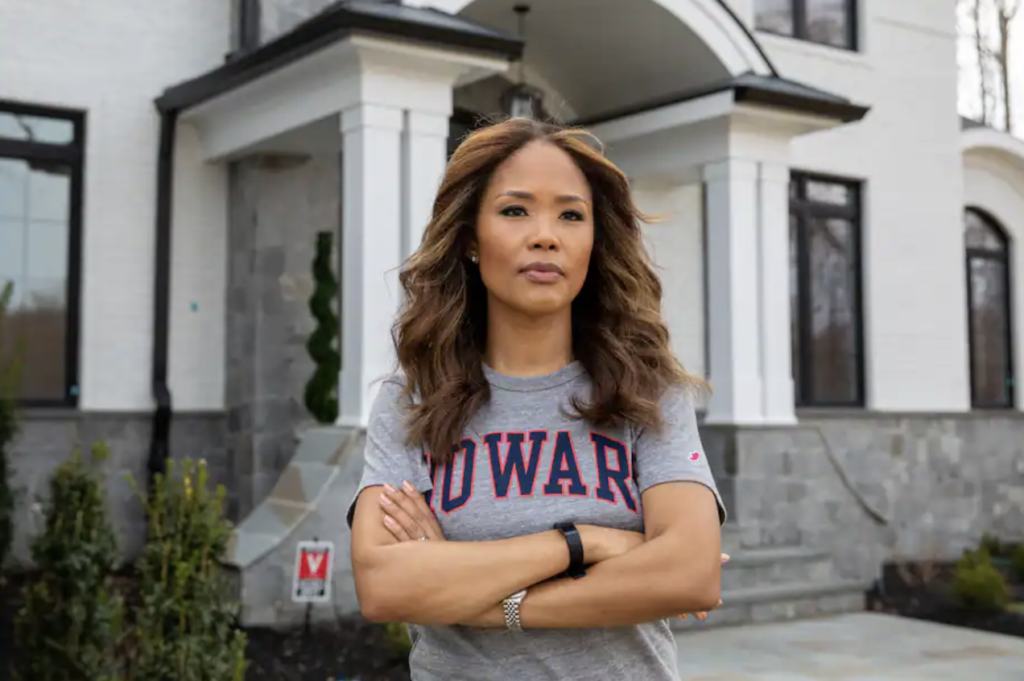
Meanwhile, some Black families are forced to consider whether it makes financial sense to buy a home in a tony predominantly Black neighborhood that might not be properly valued by appraisers.
Jacqulyn Priestly, a public relations executive, and her banker husband built a home in Prince George’s County after considering other D.C.-area communities. Their church, where the couple met, is here. So are their children’s schools. And their friends.
“At the end of the day, even though we knew we’d gain equity faster if we lived almost anywhere else, we couldn’t put a price tag on the sense of community,” said Priestly, 42.
They moved into their new home, which cost $1.68 million, last April. But when they got it appraised to turn their construction loan into a 30-year conventional mortgage loan, the house was assessed at $1.3 million. They had to come to closing with twice as much cash as they had anticipated.
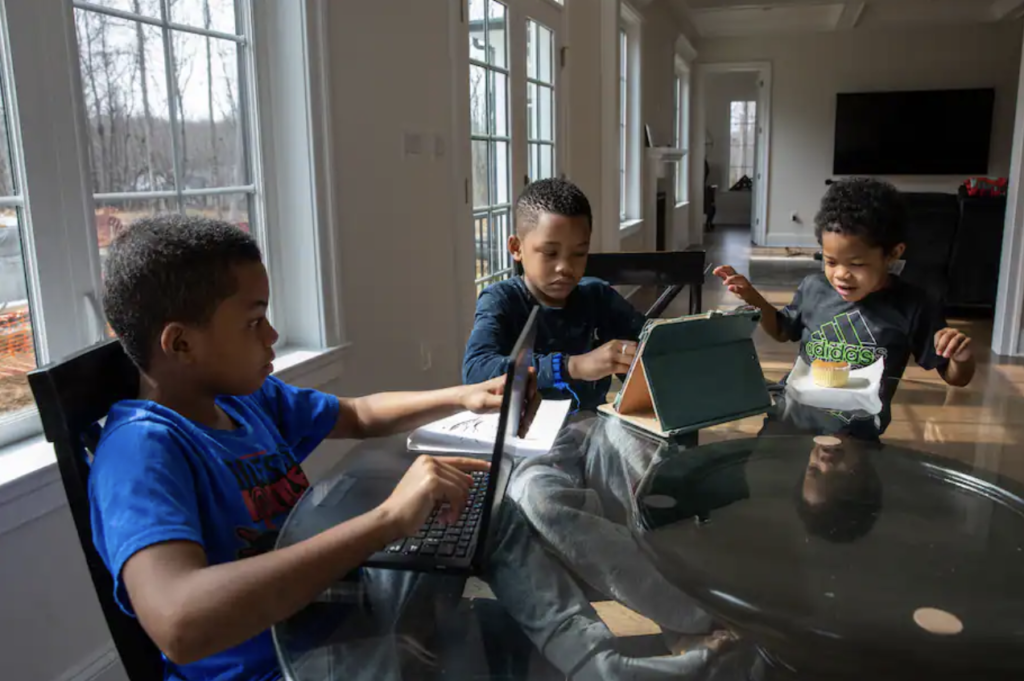
Priestly shared their experience with neighbors, including the Taylors, and discovered a pattern of undervaluation. Last summer, they started a grass-roots network called Fair and Unbiased Appraisal Advocates. Their message: Black Homes Matter.
The goal, she said, is to empower other Black homeowners to understand their rights, appeal unfair appraisals and file complaints with the state, recourse she had not known was available.
“There is a cascading effect to low appraisals, creating a stagnation that looms over Black people at every socioeconomic level,” Priestly said. “It can stifle the ability to create generational wealth. You’re saying Black people can only go so far.”
Andrew Van Dam contributed to this report.

